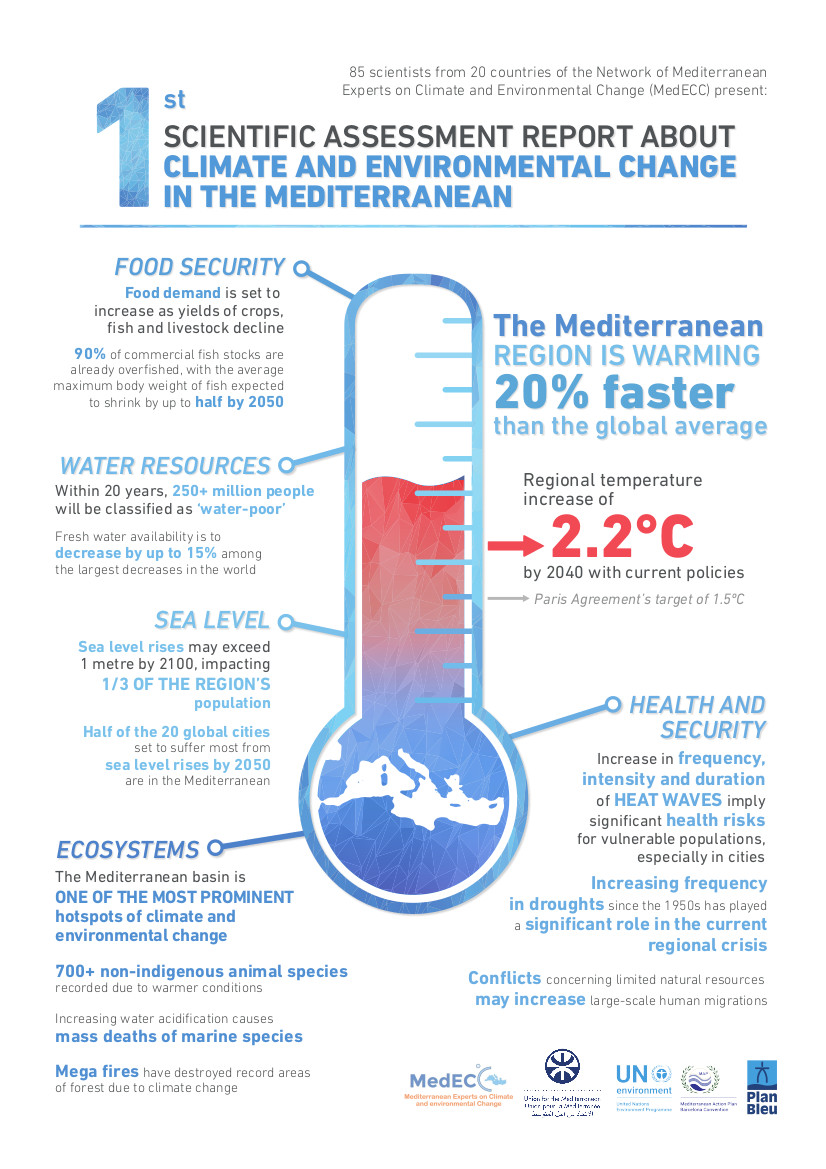The ICTA-UAB takes part in the presentation of the first assessment report on Climate Change in the Mediterranean
ICTA-UAB researcher Patrizia Ziveri participated in the presentation of the 1st Scientific Assessment Report on climate and environmental change in the Mediterranean (MAR1) of the (MedECC) in which she has collaborated.

The presentation was given by Hugo Morán, Secretary of State for the Environment in the Ministry for the Ecological Transition and the Demographic Challenge, and Arnau Queralt, director of the Advisory Council for Sustainable Development of the Generalitat of Catalonia.
The first Mediterranean Assessment Report (MAR1) gathers all available scientific knowledge on climate and environmental change as well as risks linked to the Mediterranean Basi, addressed to
The report has a summary aimed at policymakers with key messages for each of the fields. It has been prepared by an independent scientific network of Mediterranean Experts on Climate and Environmental Change (MedECC), formed by 187 scientists from 25 countries –31% of them from the southern and eastern area of the Mediterranean–. Among the experts is the ICREA research professor at ICTA-UAB Patrizia Ziveri.
Experts analyse the factors of climate change origin, and they conclude that the Mediterranean basin is warming up 20% faster than the average worldwide and that by 2040 the average temperature in the Mediterranean will exceed 2.2 ºC above the preindustrial temperature and 0.7ºC above what was agreed in the Paris Agreement. The main consequences are, for each degree it warms up, rain will decrease by 4%. Regarding the level of the sea, it could be higher than 90 cm by 2100.
Among the non-climate factors analysed in the report are the increase of pollution in the air and water, urbanization and land degradation as well as reduction of crops. Experts estimated that by 2050, cereal crops will be reduced by 17%. Another of the calculated effects is that by 2100 the burnt areas will be the double they are now.
Regarding the coastal areas, the increase of sea level will have an impact on infrastructures as well as cultural inheritance and it will cause the loss of agricultural land due to salination. Moreover, about 180 million people are likely to suffer from water scarcity.
The report also analyses the increase of overfishing and the arrival of invasive species that threaten marine biodiversity. The 90% of commercialized fish population are already overexploited. The study estimates 40% of the endemic fish species to extinct and 20% of marine species to be lost by 2050.
These factors will have an impact on the health, affected by the impact of heatwaves, pollution, with an increase of diseases due to vector-borne diseases and lack of food. In general, the effects of pollution will increase due to a raise of temperatures.